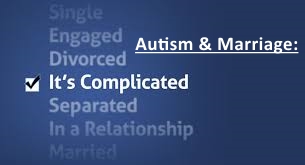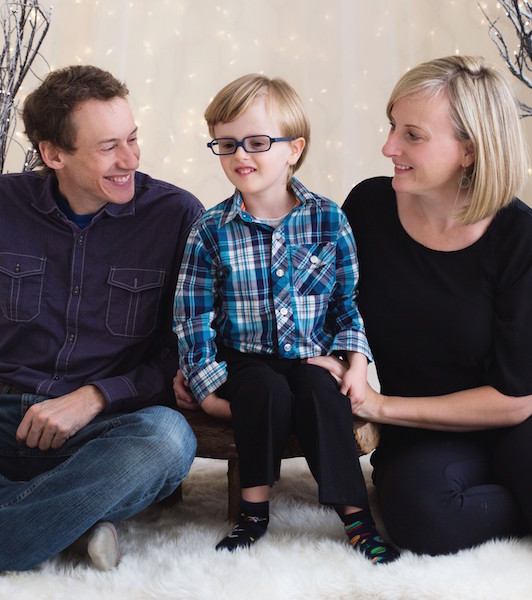As I sat down to write this article, I had a serious thought. I wondered if my husband would mind if I revealed any of the inner-workings of our marriage. I mean, shouldn’t our marriage be a private matter reserved for the two of us? And then I laughed and laughed.
Because the reality is that privacy has largely evaporated for us, and part of this is related to having a child with autism. Or a child in general, actually. This dwindling of privacy began when I was 20 weeks pregnant; the midwives were concerned that my amniotic fluid might be leaking, and they met us at the hospital. The midwife couldn’t find a proper medical light thingy to conduct the, uh, assessment, so she instructed my husband to angle a rickety lamp at me instead. I was horrified. I now label that day as the day my privacy began its decline.
From that moment onward, our relationship, increasingly exposed to the elements that come from moving across the country (twice), finishing a Ph.D, getting new jobs and having a child with disabilities, has been sunburned and frostbitten. But thankfully, it has survived.
But, sadly, privacy and emotional monogamy didn’t make it. By emotional monogamy, I mean the idea that your spouse is the first and primary person with whom you share your emotions. That door has been flung wide open — it takes a village to make our marriage work.
Why has this happened, you might ask? There are five key reasons:
1. It can be really hard, anxiety-provoking stuff for both people. There is no “rock” in this situation — both people are under a lot of stress. I cannot always lean on my husband. He’s thin and tired and he might fall over (kidding!). But seriously, imagine trying to lean on someone who’s already hunched over. We need other people to prop us up. We share a lot (probably more than they want to know) with friends, family, therapists, hairstylists, online groups, colleagues and so on. It keeps us vertical.
2. Even when we don’t verbally share them, our emotions are written all over our faces. At least they’re written all over mine, anyway. Poker-face feigning is low on my priority list. I’m now proudly channeling my late grandma, a woman who used to let it all hang out there. She said what she felt, and it used to mortify me: “Show some decorum, Grandma.” Meh, decorum is overrated.
3. We constantly repeat our personal information to more people than I can count. I have lost count of the number of health professionals who have asked extremely personal questions about our health histories, our marriage, our decisions and other statistics they could just (for the love of God) read about in the file folder they’re holding. I just love retelling and reliving these personal details on a regular basis. Ciao privacy.
4. And then there are the social workers and bureaucrats who become part of your life. These people are supposed to help you navigate various disability resources and services, but they end up coldly intruding into your family as a rite of passage to access said services. Nothing feels quite as humiliating as crying in front of a blank-faced stranger as he rolls through questions about your child, your mental health, your marriage, your support network and so on. But do you want help for you and your child? Sign away some of your privacy.
5. If you run a home therapy program, your house converts into a therapy center at least five days a week. And our apologies, but we have argued in front of our son’s therapists and greeted them with a palpable tension in the air. It can’t be helped — our home is our only real place of semi-privacy. His therapists help our marriage and family all the time, though. They teach our son, share in his accomplishments, troubleshoot with us and even provide respite so we can have occasional date nights.
Obviously, the diameter of our marriage and family circle has widened — and it needed to. While my husband and I do the day-to-day parenting of partnering, there is also a team of people involved in keeping us afloat.
So, there you have it. Autism, for better or for worse, wades into our marriage all the time. Often it does so in ways that attract good things to us, like supportive friends and family and wonderful people we would never have known otherwise. Yet it can also make us feel exposed and encroached upon. Most days we can find that sweet spot that comes with balancing these realities, and other days are harder.
But that’s (my) marriage and autism. It’s complicated, and it includes a few more people than I imagined, but it’s a damn good team.
A version of this post originally appeared on Project Bearings.
Want to help celebrate the human spirit? Like us on Facebook.
And sign up for what we hope will be your favorite thing to read at night.


